How to get URL link on X (Twitter) App
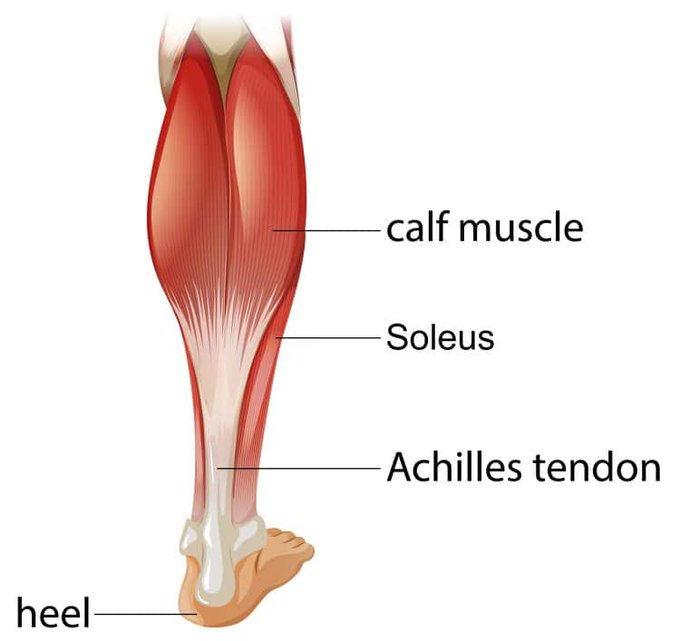
 Blood flow from the feet back up is difficult because it has to fight against gravity
Blood flow from the feet back up is difficult because it has to fight against gravity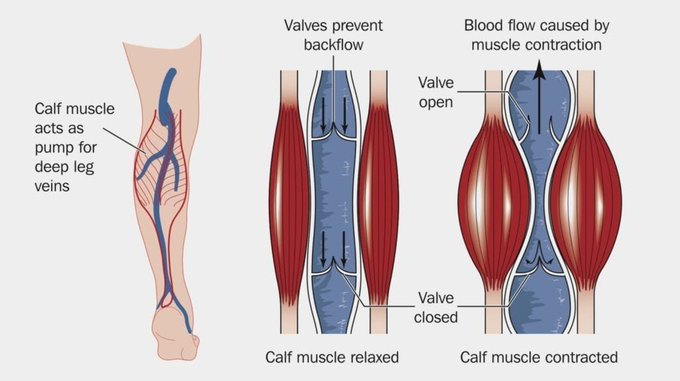
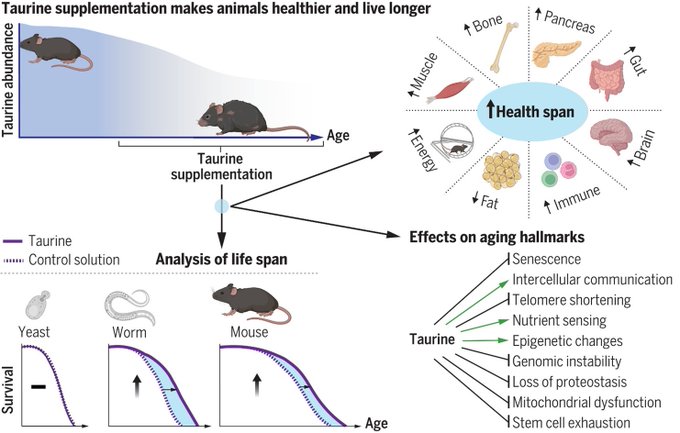
 What about human clinical trials?
What about human clinical trials?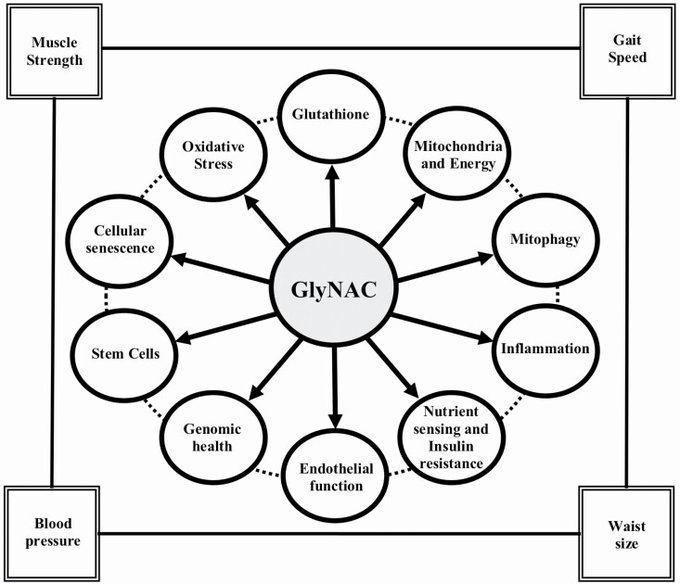
 A 2023 randomized clinical trial found that supplementing GlyNAC for 16 weeks in older adults improved glutathione deficiency, oxidative stress, mitochondrial dysfunction, inflammation, physical function, and 7 hallmarks of aging (PMID: 35975308)
A 2023 randomized clinical trial found that supplementing GlyNAC for 16 weeks in older adults improved glutathione deficiency, oxidative stress, mitochondrial dysfunction, inflammation, physical function, and 7 hallmarks of aging (PMID: 35975308)
 The guidelines recommend adults get 150-300 min/week of moderate exercise or 75-150 min/week of vigorous exercise
The guidelines recommend adults get 150-300 min/week of moderate exercise or 75-150 min/week of vigorous exercise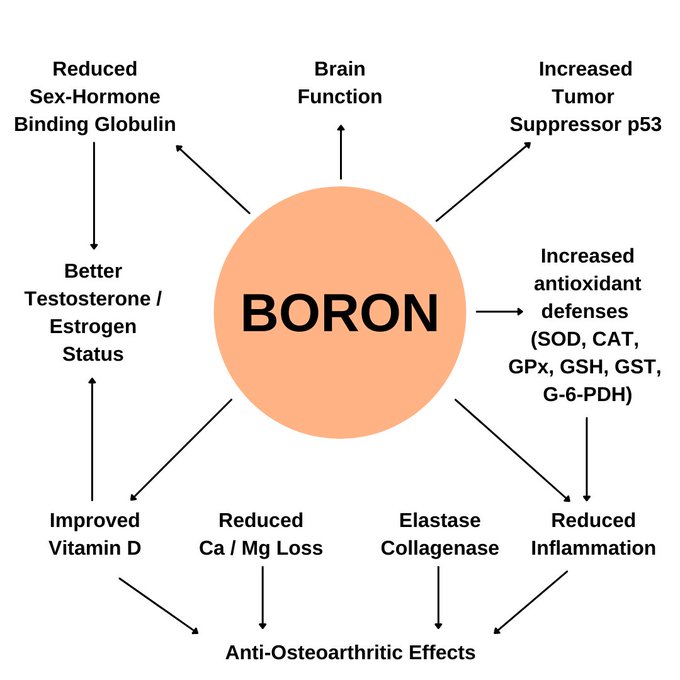
 Boron is a trace element that is found in nature bound to oxygen and sodium
Boron is a trace element that is found in nature bound to oxygen and sodium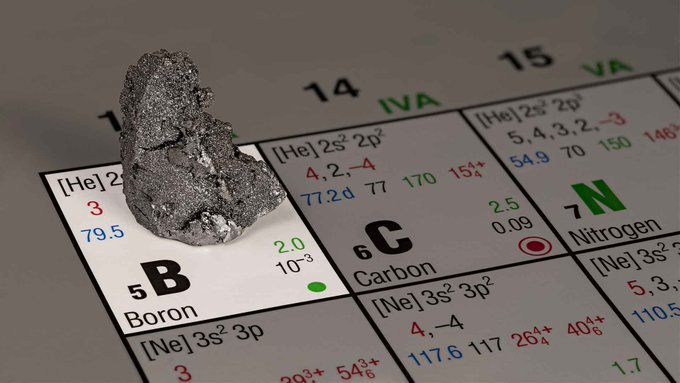
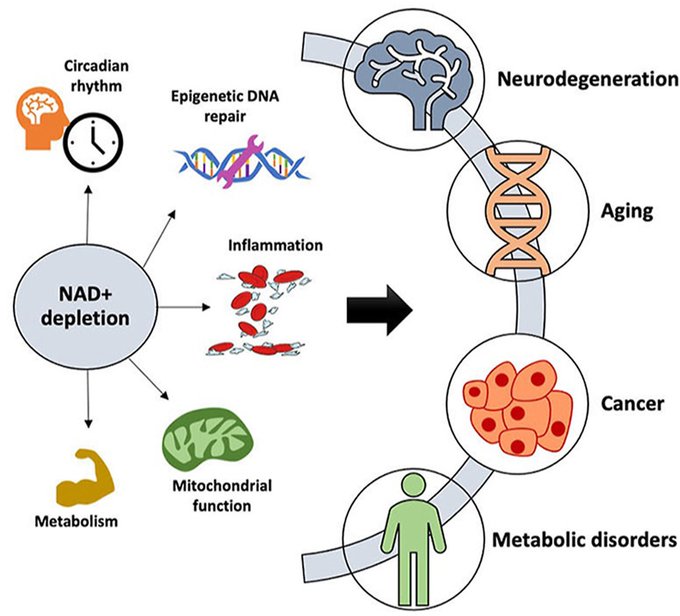
 CD38 is the main consumer of NAD and the primary reason NAD declines with age
CD38 is the main consumer of NAD and the primary reason NAD declines with age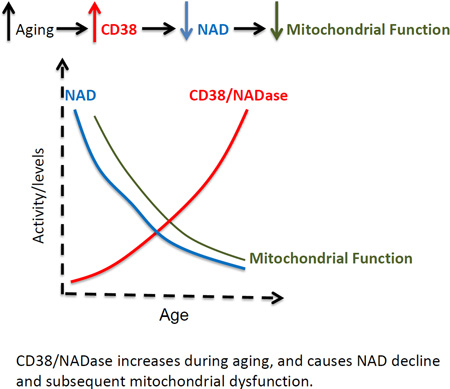

 First, what is NAD
First, what is NAD

 Green tea contains many bioactive compounds that target all the hallmarks of aging:
Green tea contains many bioactive compounds that target all the hallmarks of aging:

 In this study, microneedling + topical vitamin A and C resulted in 658% higher epidermal thickness compared to no treatment
In this study, microneedling + topical vitamin A and C resulted in 658% higher epidermal thickness compared to no treatment

 Sauna has many protective health benefits and appears to even offset the higher risk of all-cause mortality related to lower socioeconomic status, high blood pressure, and high inflammation levels
Sauna has many protective health benefits and appears to even offset the higher risk of all-cause mortality related to lower socioeconomic status, high blood pressure, and high inflammation levels 


 Quick summary of the differences in our biomarkers:
Quick summary of the differences in our biomarkers:
 Middle-aged and older athletes, especially those who exercise for over 2000 MET-min/week, have significantly higher coronary artery calcification scores than controls (PMID: 28465287; PMID: 28450347)
Middle-aged and older athletes, especially those who exercise for over 2000 MET-min/week, have significantly higher coronary artery calcification scores than controls (PMID: 28465287; PMID: 28450347) 


 Last week, I posted that the Japanese, on average, sleep 5.9 hours a night, but they're the 2nd longest living people in the world (85.27 years)
Last week, I posted that the Japanese, on average, sleep 5.9 hours a night, but they're the 2nd longest living people in the world (85.27 years)

 First, how do the microplastics get into the brain given the brain is protected by the blood-brain barrier?
First, how do the microplastics get into the brain given the brain is protected by the blood-brain barrier?

 Blood flow from the feet back up is difficult because it has to fight against gravity
Blood flow from the feet back up is difficult because it has to fight against gravity

 Andre the Giant had acromegaly - excessive growth hormone and IGF-1 production, resulting in massive growth
Andre the Giant had acromegaly - excessive growth hormone and IGF-1 production, resulting in massive growth

 2. Both moderate physical activity (MPA) and vigorous physical activity (VPA) are associated with reduced cardiovascular and all-cause mortality (PMID: 35876019)
2. Both moderate physical activity (MPA) and vigorous physical activity (VPA) are associated with reduced cardiovascular and all-cause mortality (PMID: 35876019)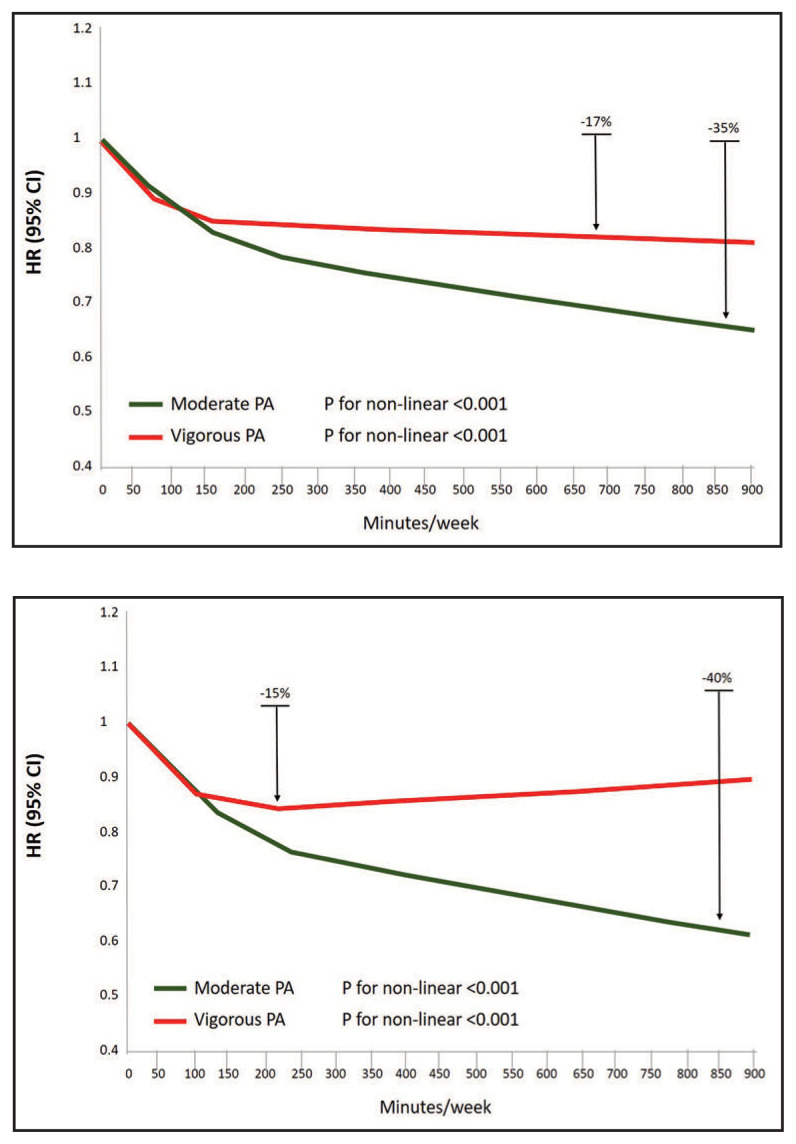
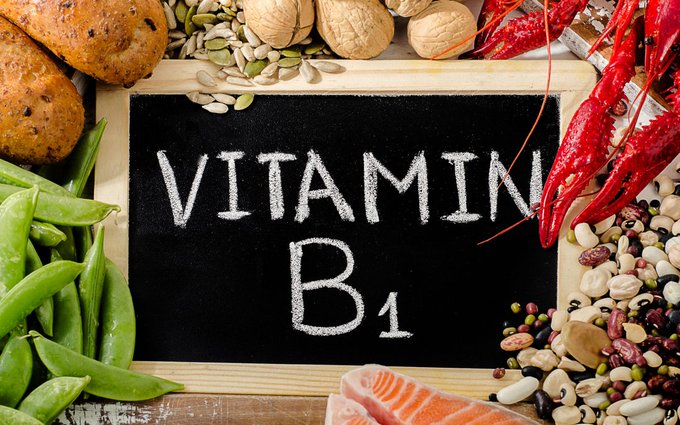
 What happens if you don't get thiamine
What happens if you don't get thiamine
 The guidelines recommend adults get 150-300 min/week of moderate exercise or 75-150 min/week of vigorous exercise
The guidelines recommend adults get 150-300 min/week of moderate exercise or 75-150 min/week of vigorous exercise
 Middle-aged and older athletes, especially those who exercise for over 2000 MET-min/week, have significantly higher coronary artery calcification scores than controls (PMID: 28465287; PMID: 28450347)
Middle-aged and older athletes, especially those who exercise for over 2000 MET-min/week, have significantly higher coronary artery calcification scores than controls (PMID: 28465287; PMID: 28450347) 

